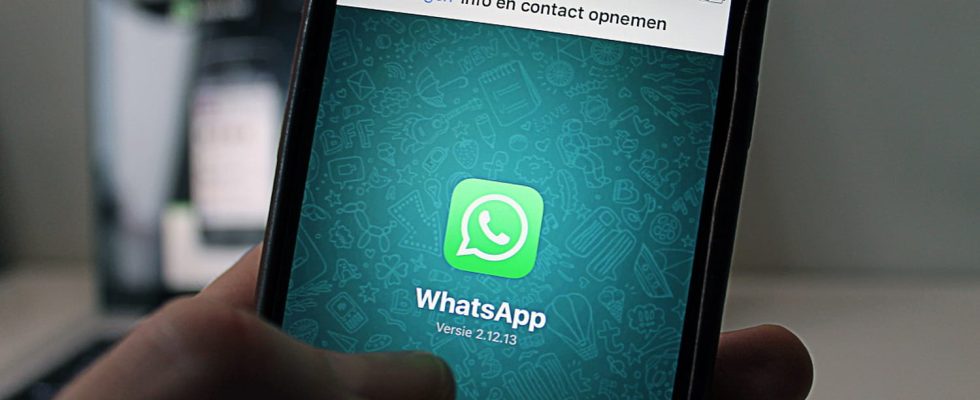An old dream will soon come true: to comply with the European Digital Markets Act, WhatsApp will soon allow you to have conversations with other messaging systems. Here’s how it will work in practice.
Soon, WhatsApp should welcome your chats from other messaging services. A revolutionary change due to the Digital Markets Act (DMA), imposed by the European Commission and to which digital companies – including Alphabet (Google), Amazon, Apple, ByteDance (TikTok), Meta (Facebook) and Microsoft – must bend. As a reminder, this is new legislation which aims to regulate digital markets by combating the anti-competitive strategies of players and protecting users and consumers while promoting innovation. It will come into force on March 6.
Among the many measures imposed on digital companies, we find interoperability. This difficult-to-pronounce name simply refers to compatibility between communication services, platforms or applications. Thus, in the same way that we can chat with a correspondent using a different telephone operator, we will soon be able to exchange messages with any other user, regardless of the messaging services used (WhatsApp, Signal, Messenger, Telegram or iMessage). A real revolution which should significantly simplify everyday life! It turns out that the specialized site WABetaInfo discovered in the beta version 2.24.6.2 of WhatsApp for Android that Meta messaging will let everyone specifically choose the third-party applications authorized to interact with their accounts, including deactivating the interoperability service cats. A way for us to avoid spam and the risks associated with less secure platforms, while giving us increased control over our interactions. Please note that deactivating the chat interoperability service means that you will lose the ability to send or receive messages in third-party chats. In this case, discussions with them will go into read-only mode and will remain accessible in WhatsApp until you choose to delete them.
Interoperability: an alternative inbox in WhatsApp
Since the European Commission’s announcement, WhatsApp has been working hard to comply with the measures which will be applicable from March 6. Last September, the company notably began testing the interoperability of Android smartphones. A new section entitled “third-party conversations” was then created. In this tab, you could find messages received from other email clients. Then, in January 2024, it was the turn of the iPhone to experience such a revolution.
This new function, which should arrive in a future update, will streamline communications between users. At the beginning of February, Dick Brouwer, the head of engineering at WhatsApp, revealed more details to our colleagues at Wired. He explained that each user will face a pop-up asking if they want to open WhatsApp when receiving messages from third-party services. In the event of a positive response, a dedicated section will appear at the top of the list of messages. This “alternative inbox” will collect all messages from third-party applications. It is important to remember that users will be able to activate or deactivate the function if they wish, as indicated in article 7 of the DMA. Initially, interoperability will only concern text messages, sending images, video, files or voice messages, but neither calls nor group chats.
WhatsApp interoperability: the thorny question of encryption
As with other conversations in the app, end-to-end encryption will be required for interoperable messaging systems. Enough to guarantee a sufficiently high level of security for all users. Dick Brouwer, however, clarified that this system “does not provide the same level of security and privacy protection” than that offered natively by the application, given that each messaging system uses its own data obfuscation mechanism. Suffice to say that it is far from easy to make all these little people work together!

Meta would like all other messaging services to use the same encryption protocol as Signal – also used by WhatsApp, Google Messages and Skype – although the firm is not closed to other options, provided that these applications can prove “that they meet the security standards described by WhatsApp in its guidelines”. All this is not going to happen in a snap, each company will have to do some engineering work on their own to connect to Meta’s messaging servers. “There is a real tension between providing simple interoperability to third parties while maintaining the security, integrity and privacy of WhatsApp”, explained Dick Brouwer. One thing is certain: when interoperability is in place, it will be much easier to communicate!
